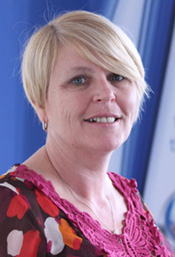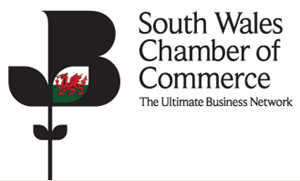 The new Child Benefit tax charge, and what to do about it?
The new Child Benefit tax charge, and what to do about it?
The Government has estimated that the new “High Income Child Benefit Charge” will affect over one million families following its introduction earlier this month, writes Gareth Tregidon, Financial Planning Manager at Bevan & Buckland Chartered Accountants.
As you may already be aware, from 7th January 2013 the Government has introduced a form of income-based means testing for families who are in receipt of Child Benefit. In simple terms, anyone with children under 16 (or under 20 and in qualifying education or training) who receives Child Benefit and has an income of over £50,000 per annum will be affected.
However, as with most things tax-related, the position is not straightforward.
Child Benefit will start to reduce where a parent’s “adjusted net taxable income” exceeds £50,000 per year. This is not total household income, but that earned by either parent. Between £50,000 and £60,000 the “High Income Child Benefit Charge” (tax by another name) will act to gradually reduce the amount of benefit retained by 1% for every £100 over the £50,000 limit. At £60,000 the benefit is lost altogether.
Let’s look at some examples.
Consider three families, each with 2 children under 16 and the same total taxable household income of £75,000:
- Family A: Parent 1 earns £70,000 & Parent 2 earns £5,000 All benefit lost
- Family B: Parent 1 earns £57,000 & Parent 2 earns £18,000 70% loss of benefit
- Family C: Parent 1 earns £40,000 & Parent 2 earns £35,000 No benefit lost
The new charge could make a difference of £1,752 a year between families A and C, rising to £2,449 a year for a family with 3 children.
The charge applies to “adjusted net taxable income”, so where an individual has some control over their earnings (and perhaps those of their spouse or partner) there are measures that can be taken to help retain the benefit. The key is to reduce “taxable” income by looking at areas such as:
- Pensions – consider making contributions, ideally to reduce income to below £50,000 although any reduction to below £60,000 will help. If this cannot be afforded in the usual manner, could consider a salary sacrifice (sometime called “salary exchange”) arrangement. (Great care needs to be taken with salary sacrifice to ensure that this does not affect other areas of financial planning).
- Charity payments – Gift aid on payments to registered charities reduces taxable income in a similar way to pension contributions.
- Investment income – If you have income from investments (for example, cash deposits, shares or rental property) is there scope to adjust the way these are held, for example by converting to an ISA or transferring to a lower earning partner? Care will again need to be taken to ensure this does not generate a separate tax charge (for example, Capital Gains Tax).
- Allowable expenses – Ensure that all allowable expenses are being claimed.
For those where one parent’s income is higher than £60,000, you may consider that there is nothing much that can be done, especially where all of the net spendable income is needed for day-to-day living. In these cases it is possible to avoid the additional tax charge by asking HMRC to stop the payments, however in some cases it is still worth making a claim.
Let us assume that one parent stays at home to look after the children and does not work. As they will not be paying National Insurance contributions (NIC) they will not build up an entitlement to State Pension during the period they are not working. By claiming Child Benefit for a child under 12 the non-earning partner will still receive NIC credits to help protect their entitlement. The recent announcement that the number of NIC qualifying years will increase with the introduction of the new flat rate pension in 2017 (from 30 to 35 years) makes it even more important to make a claim.
As you can see, where a family has what the Government describe as a “high earner” (£50,000 a year or more), the new tax charge will have an effect. In these cases advice is essential, not only to try to reduce the tax charge but also to ensure that full entitlement to State Pension is retained. In all cases where the use of salary sacrifice is being considered, we would always strongly recommend you take advice, as this can have an effect on other areas of planning (such as entitlement to other benefits, and for mortgage or loan calculations).
Although the new Child Benefit tax charge has been heavily criticised in many quarters, it is now in place and seems likely to remain. With around 12 weeks left in the current Tax Year, the biggest impact of the charge may well not be felt until the 2013/14 Tax Year, so planning ahead is highly recommended. As you will appreciate, Bevan & Buckland is well placed to help in this area, with specialist expertise in both tax and financial planning. If you would like to discuss any of the issues raised please speak to your usual contact within the firm, or contact me in the first instance.
Gareth Tregidon.
Gareth Tregidon is manager of Bevan & Buckland’s Financial Planning Department, which operates from the firm’s Swansea, Pembroke and Haverfordwest offices. The department provides fee-based advice to personal and business clients, both from within the firm and elsewhere.
As well as having over 25 years’ experience in the provision of financial advice, Gareth is a Certified Financial PlannerCM and an accredited Later Life Adviser with the Society of Later Life Advisers (SOLLA). He is former Chairman of the Institute of Financial Planning in South Wales, and an assessor for the internationally recognised Certified Financial PlannerCM licence.
http://www.bevanbuckland.co.uk/services/financial-planning
Bevan & Buckland Accountants Swansea Tel: 01792 410100
Bevan & Buckland Accountants Haverfordwest Tel: 01437 760666
Bevan & Buckland Accountants Pembroke Tel: 01646 682383
 Swansea Accountants offer businesses help with big payroll changes
Swansea Accountants offer businesses help with big payroll changes Department for Work and Pensions (DWP) in October, a new system of real time reporting will come into effect and as part of the standard payroll practice all payments and deductions to employees or pension recipients must be provided to HMRC.
Department for Work and Pensions (DWP) in October, a new system of real time reporting will come into effect and as part of the standard payroll practice all payments and deductions to employees or pension recipients must be provided to HMRC.




